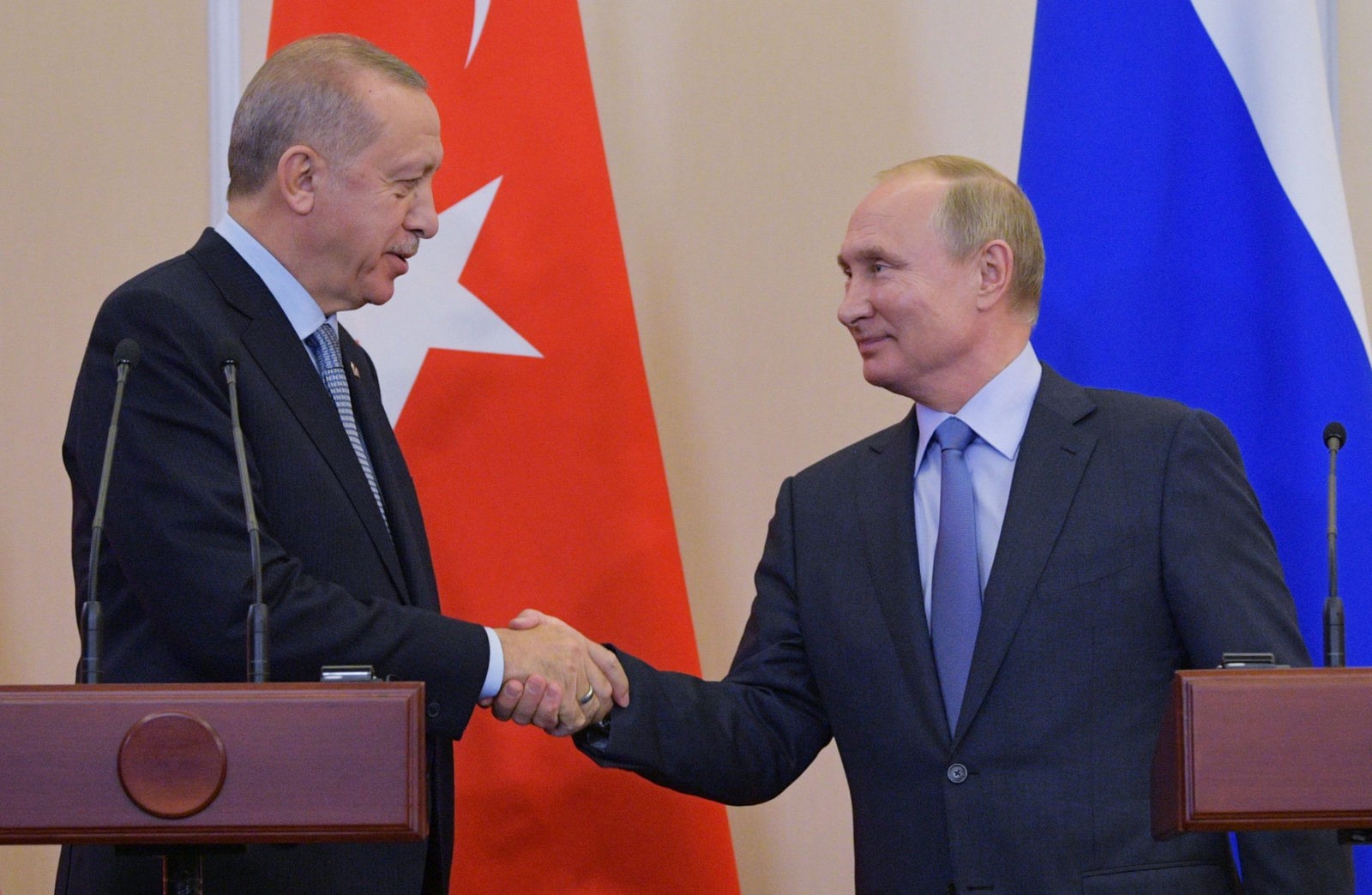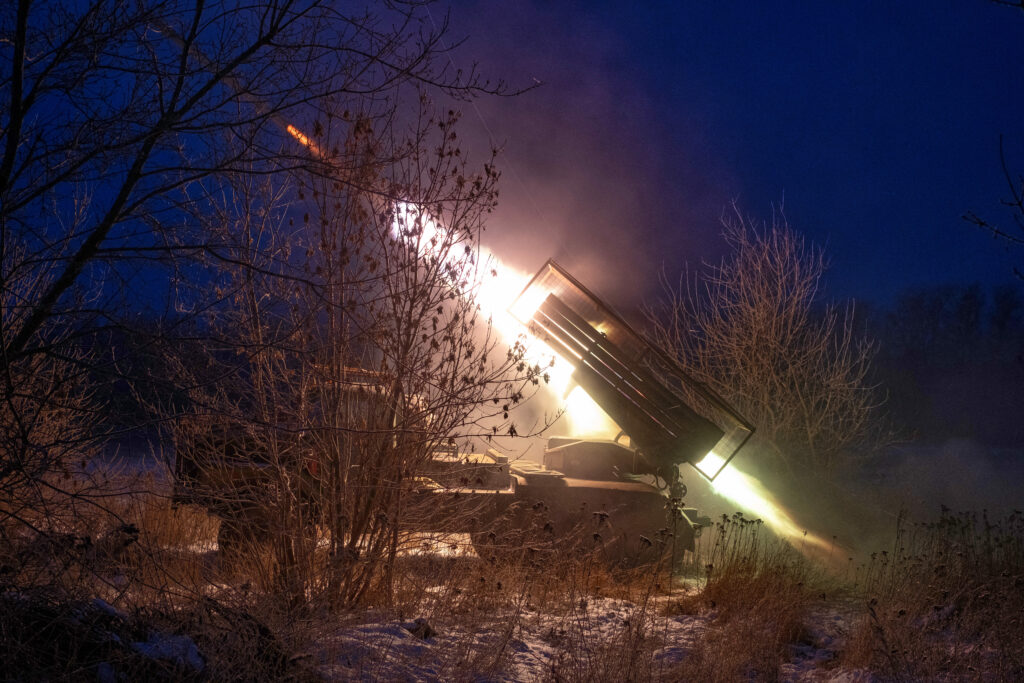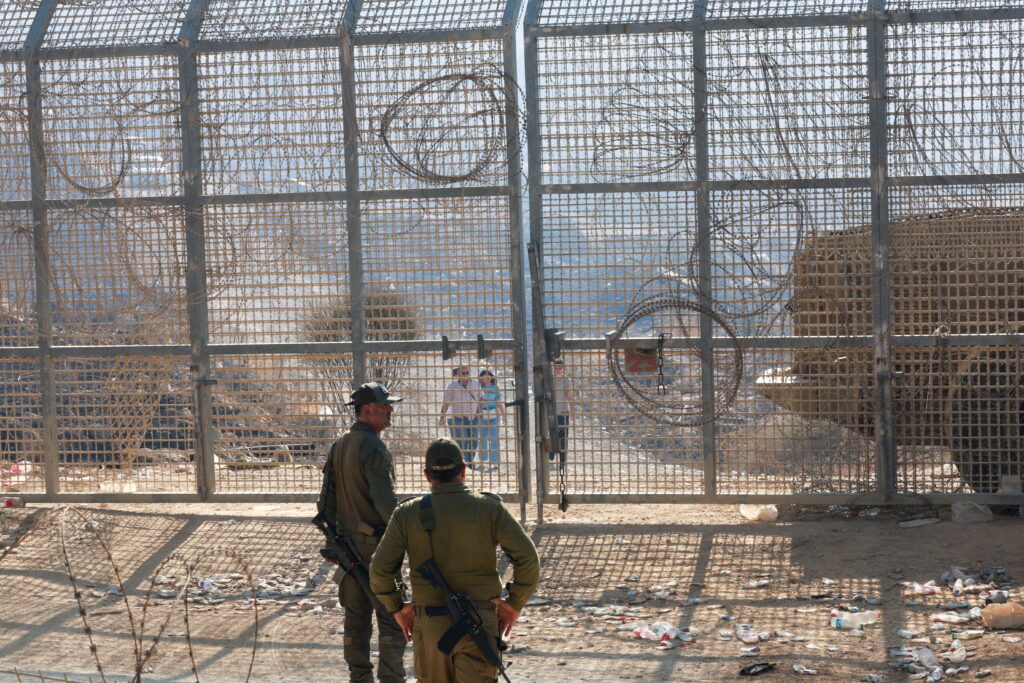The Turkish authorities announced their military incursion into Syria on October 9th. Named Operation Peace Spring, it lasted a little over a week. It ended after the visit of US Vice President Mike Pence to Ankara. Negotiations between Vladimir Putin and Recep Erdogan in Sochi on October 22nd drew a line over the Operation.
In general, Operation Peace Spring causes a persistent feeling of deja vu. The first thing that comes to mind is two other Turkish operations. One: Operation Euphrates Shield in 2016. The other, Operation Olive Branch in 2018. (The operation in 2018 was also preceded by consultations with the Russian military, which provided the Turks with freedom of action within an agreed territory.)
In 2018, Erdogan promised «to end the Kurdish Workers Party and the People’s Self-Defense Forces.» He vowed to «drive them away.» That operation was considered successful, as reported by the Turkish General Staff on March 24, 2018. Although the Kurdish «threat» to Erdogan did not disappear, both Moscow and Ankara have benefited from this situation.
This time round, the «staged» nature of the Operation Peace Spring was felt both in the course of the hostilities and in the negotiation process. Initially, there were no prerequisites for the start of full-scale hostilities by Turkey in northeast Syria. However, the need for a short-term operation against the Kurds, to assuage an internal Turkish audience, has been increasing.
This is due to the peculiar political situation in which the Turkish leader exists. Syria is one of Erdogan’s most pronounced foreign policy failures since the Arab Spring. Turkey’s interests in Syria are becoming harder to see. The returned rule of Bashar al-Assad over the territories lost during the civil war makes it worth questioning the rationale of Turkish participation. Having no real opportunities to cultivate influence in Syria, Erdogan resorts to «demonstration operations.» These would at least help keep up the existing image of the Turkish leader in the eyes of his own people.
It was impossible for Turkey not to seize on Trump’s decision to withdraw of American troops. For Erdogan not to act meant to miss out on a moment for yet another show of force. It is no coincidence that the question of the future of northeast Syria after the departure of the American military was entrenched on the agenda of the Russian-Turkish negotiations immediately after the American president made the first statement on the matter at the end of 2018.
Operation Peace Spring has long been discussed by the Russian and Turkish officials. Each side wants to gain from the withdrawal of American troops. Moreover, the same can is true of the American establishment; the next presidential campaign is underway, after all. At the same time, the history of Russian-Turkish cooperation in Syria after another rapprochement between Putin and Erdogan in the summer of 2016 already knows many examples of joint military operations.
Not even a month had passed after the meeting between Putin and Erdogan in St. Petersburg, where the leaders announced that the episode with the downed Russian plane was exhausted, when Moscow expressed support for Ankara in the Operation Euphrates Shield. The aim stated was to fight the Islamic state, and along with it the Kurdish People’s Self-Defense Forces.
In February 2018, after consultations between the Russian and Turkish military in Moscow, Turkey received the right to launch another military offensive: Operation Olive Branch against all the same Self-Defense Forces (only this time in Afrin). Having achieved at least visible success in ensuring the security of the Syrian-Turkish border west of the Euphrates, Ankara began to show more interest in the eastern part of the border. Turkey’s interest in northeastern Syria grew along with the fight against the Islamic state and the entrenchment of Kurdish position there. The only obstacle was the presence of American troops.
It is not surprising that the withdrawal of the American troops from northeast Syria contributed to the formation of the military-political vacuum that both Ankara and Moscow were waiting for. From this point of view, Operation Peace Spring is an attempt to provoke a redistribution of spheres of influence in Syria without American troops. The results of this short-term military operation, with minimal losses on both sides, were reflected in the Sochi accords. Their result is new military and political realities in northeast Syria.
Under the Sochi memorandum, the existing status quo in the area of Operation Peace Spring between Tell Abyad and Ras al-Ayn will be preserved. The Kurdish Self-Defense Forces will be withdrawn from other areas along the border, as well as from the cities of Manbij and Tell Rifaat. The parties also agreed that a joint monitoring and verification mechanism will be created. This will review and coordinate the implementation of this Memorandum.
The Kurds lose out
In general, the agreements in Sochi, as well as the results of the negotiations between US Vice President Mike Pence and Erdogan, can fit all parties. All except the Kurds. Erdogan managed to keep the image of a strong leader, capable of influencing the regional agenda. This was also facilitated by how the world media covered the Turkish military operation as though it were the onset of another large-scale conflict in the Middle East.
The Turkish leader managed to withdraw the Kurdish National Self-Defense Forces from the entire border. According to the results of the agreement with Mike Pence, this time the Turkish soldiers did not even have to «drive them away» — the United States are doing it for them.
Moreover, Erdogan is opening up the border zone to mitigate the refugee crisis, and to settle this territory with Syrians loyal to the Turks. This may find approval in Damascus. The Assad regime may wish for a disloyal population to be kept out on the Syrian periphery.
Once again, Vladimir Putin managed to keep up the image of the main acting player in Syria. He showed once again to the world community that crucial political decisions have long happened not only in Washington, but also in Sochi. The Kremlin can also gain from how that Syrian Kurds have to focus more on Moscow than on Washington now. Once again, it gives the Russian leadership a chance to declare itself a more reliable partner than the Americans.
By the way, the Kremlin also made sure to leave in its arsenal the levers of influence on the Syrian regime. Though the latter received a chance to regain part of the abandoned territories, it is still premature to talk about the full return of the Syrian army to the border with Turkey. In fact, joint patrolling of the Syrian-Turkish border outside the zone of Operation Peace Spring by the Russian military police gives Moscow levers of influence over the regime of Bashar al-Assad. For example, on the issue of the Constitutional Committee, which should begin its work soon.
The United States have also come out well here. First, the very «toxic» issue of the Kurds, which in recent years has overshadowed US-Turkish relations, has begun to fade. Second, Donald Trump fulfilled his campaign promise. He has clipped back a Middle East project that is disadvantageous and without profit for the United States. The American presence in Syria was one of these.
In fairness, the opponents of Donald Trapp had an excellent reason for criticizing the head of the White House: Allegations of betrayal of the American allies. Equally, Trump’s «conviction» in another conspiracy with Moscow and Ankara. According to the Democratic Party, they look like the main beneficiaries after the withdrawal of American troops. That comes in handy, given that Washington is in full swing with hearings on the impeachment of Donald Trump.
Still, the Sochi memorandum is by no means the end to all this. It marks the reformatting of spheres of influence in Syria, this time provoked by the withdrawal of American troops. The agreements reached only set the general framework for the future status quo. That is still in the making, depending on the balance of forces on the ground.










